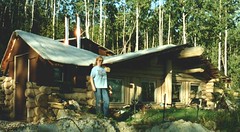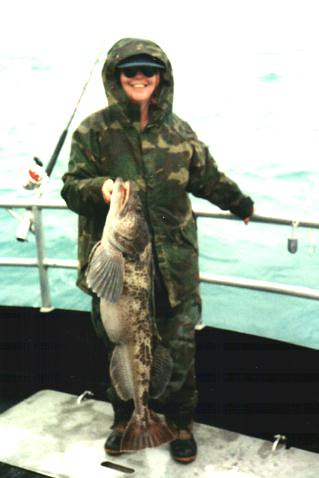
Comments and Graphics - Layouts - Photobucket
As Preppers, we may be aware of our rights against search and seizure without just cause and/or warrants, right to an attorney, etc. Shoot, we have spent years watching Law and Order and CSI!
Today I read a post on another website about a homeowner who maced two young men (fraternity brothers) who were trespassing on his property. Apparently, this trespassing had happened before since a fraternity house was next door and the students would use his unfenced property as a shortcut. Calls to the police were not successful. This time he went into his dark yard and maced the two men. They brought charges against him, and he is being prosecuted by a zealous D.A. http://www.survivalblog.com/2010/06/you_versus_the_perps_their_law.html
I have no interest in discussing whether he had the right to do what he did, or the wisdom of his actions. What was interesting were the posts in reply to his story, particularly how he dealt with the police after the event.
He did what I suspect many of us would do--try to be cooperative and reasonable since you obviously did nothing wrong and have nothing to hide.
The cop was bright eyed but young. I was friendly, let him in. Explained it like I am now, minus the edge. My demeanor probably kept me from jail....In the meantime off to court I go.
I'm trying to stay okay with cops. The D.A. will be harder not to hate. The officer asked for a voluntary statement which I gave the next day, said pretty much the same as I had during the initial interview. No lies or distortions; Joe Friday's "just the facts." The Assistant D.A. used it against me! Later, my attorney said that giving the statement showed I "had no understanding whatsoever about how the criminal justice system works."
Many Preppers have concealed carry permits and weapons, and the liability that goes along with that. Some of us have guns and ammunition for hunting as well as protection, knives, pepper spray, training in hand-to-hand combat, etc. But what happens if you actually find yourself in a situation where you have to defend yourself. I will assume you are NOT the aggressor or law breaker who deserves to be arrested and convicted.
Imagine that you have finally had to take a violent action to protect yourself, family, or property. The adrenaline will be flowing, you will feel like the other party deserved what they got, and any reasonable person would agree that you were justified in taking the action you did. Why would you not want to talk to the police to give them your side. You really want them to understand. And besides, only guilty people ask for an attorney, right? Once they know what really happened, you won't have to get an attorney and can save all that money, right? Wrong.
Some of the responses to the above post are from an 18 year police veteran and a 20 year firearms instructor who gave some wise advice. The Police Officer acknowledged that police officers will say whatever it takes to get information from you, get access to your property with your approval (no warrant), and may talk like they are your best friend and agree that you were in a tough situation, had no choice, etc. He also emphasized that they do not care about your best interests--only their own. http://www.survivalblog.com/2010/06/seven_letters_re_you_versus_th.html
Here's what the firearms instructor advises you to do and say:
"I think I'm in shock and need to go to the hospital." Often more true than you might think.
"I want to talk to my attorney."
He who calls 911 first is the "victim". Prior to the point where you will be using force against one or more opponents, you should call 911 and keep the line open. The call is recorded and can be used in your defense. If things happen too quickly to call first, call immediately after the incident and ask for help. This way you get to tell the story first.
Be absolutely sure of the laws involving force (lethal or non-lethal) in your state. For instance, here in Ohio lethal force may not be used to protect property, but in Texas things are much different. Know your laws.
The Police veteran wrote the following:
As a police officer I can give you the following advice:
1) Don't let me in your house unless I have a warrant. If I have a warrant, don't resist my entry.
2) Do not consent, in writing or verbally, to a search of your person, vehicle or residence. No matter what I promise, no matter what I threaten. If I had probable cause for a search, I'd be doing it. If I am asking for your consent, it's because I am on a fishing expedition or because I don't have probable cause yet.
3) Don't try to explain. If the police are there, something has gone wrong or something bad has happened. If something has gone wrong or something bad has happened, then you probably need a lawyer.
4) There are hundreds of petty laws I can arrest you for, If you aren't in handcuffs, don't give me a reason to put them on you. Once I arrest you, my ability to search you and your property generally increases.
5) If you are having problems with trespassers or something similar, document it. Call the police and record the time and result. Keep calling. The squeaky wheel gets the grease. Contact your elected representatives (local/municipal/county etc). Find others who are having the same problem and attend community meetings. Request an appointment with the police commander or tour chief responsible for your area. Address your concerns in a professional, calm manner.
6) Even if the police are wrong and you are being victimized by them, do not make matters worse by resisting/fighting etc etc.
7) Video and audio recording devices are cheap, small and getting cheaper and smaller all the time. They come in handy.
8) The police are not your friend. The police are doing a job. The police want to go home at night. The police will do what benefits the police, not what benefits you.
9) Know the law. Know your rights. Know your lawyer's phone number. Just remember, one thing police really, really dislike is being lectured by someone claiming to know their rights, claiming to know the law. More often than not, someone who is screaming "I know my rights!" is wrong. - Tom M.
How can you prep for this? Take Tom's advice and have a lawyer's name and number available, and learn your state laws right now. I would add, make sure you are well-trained in the use of any weapons or self-defense tools you have in your possession.
------------------------------------------
Join the APN Forum at www.AmericanPreppersNetwork.net
Visit the North Carolina Forum at www.NorthCarolinaPreppersNetwork.net































